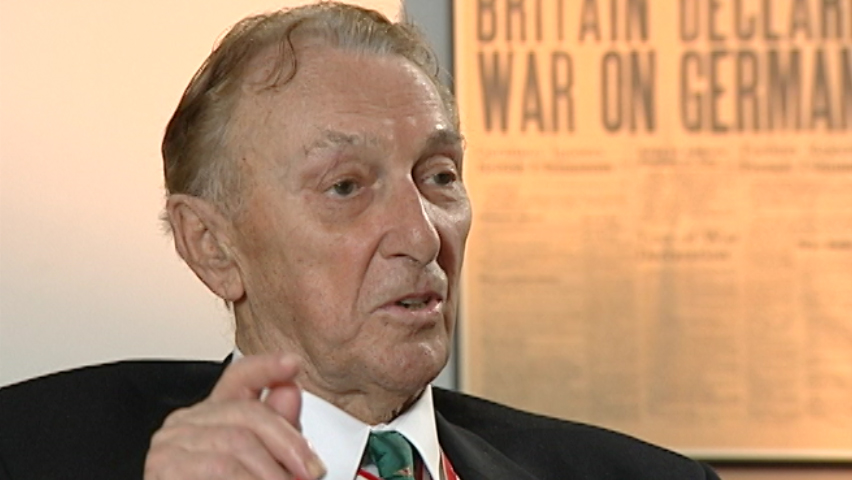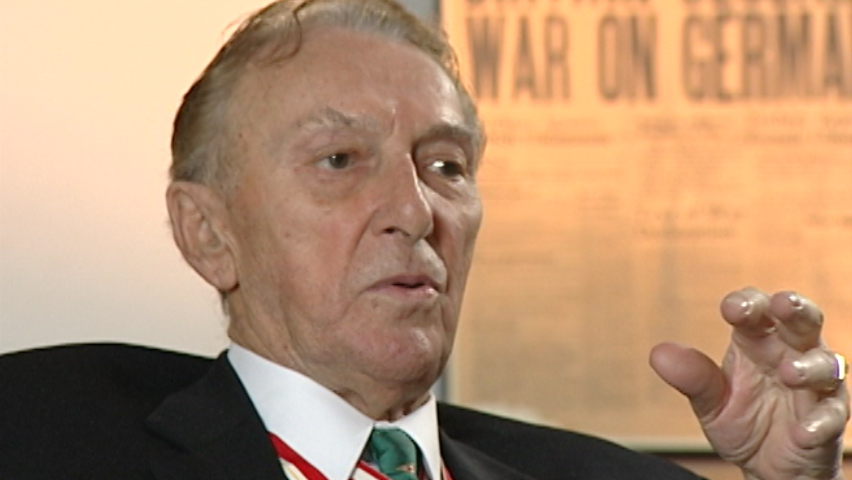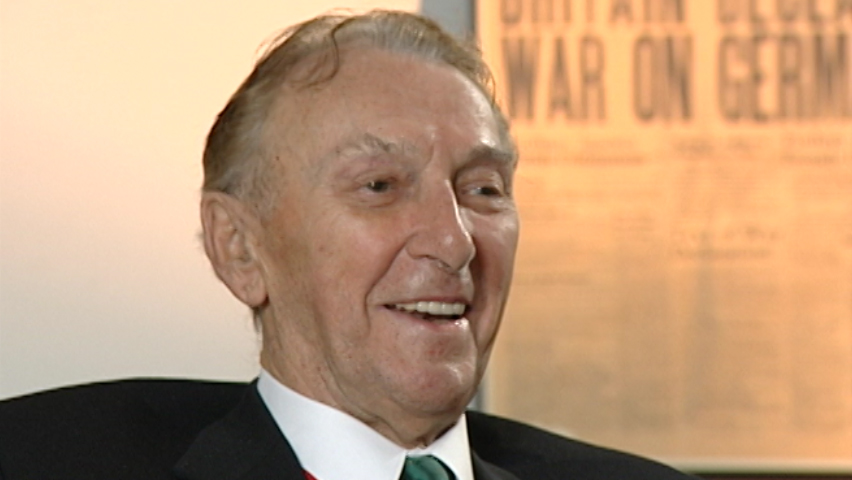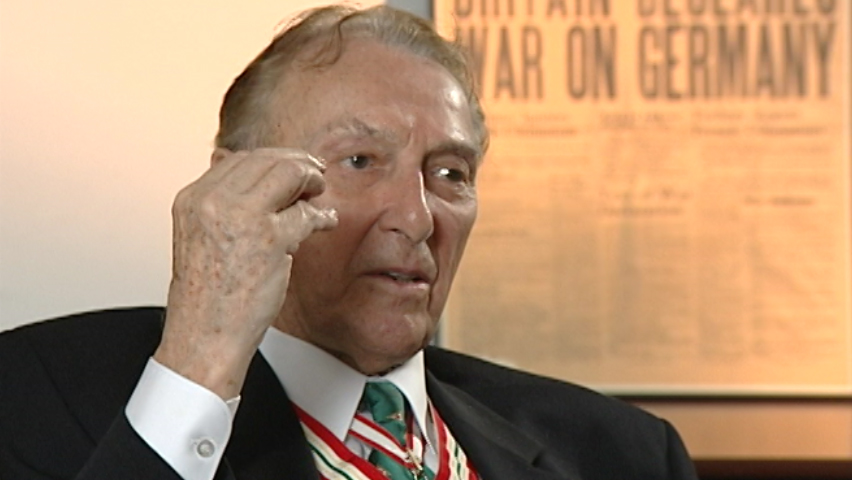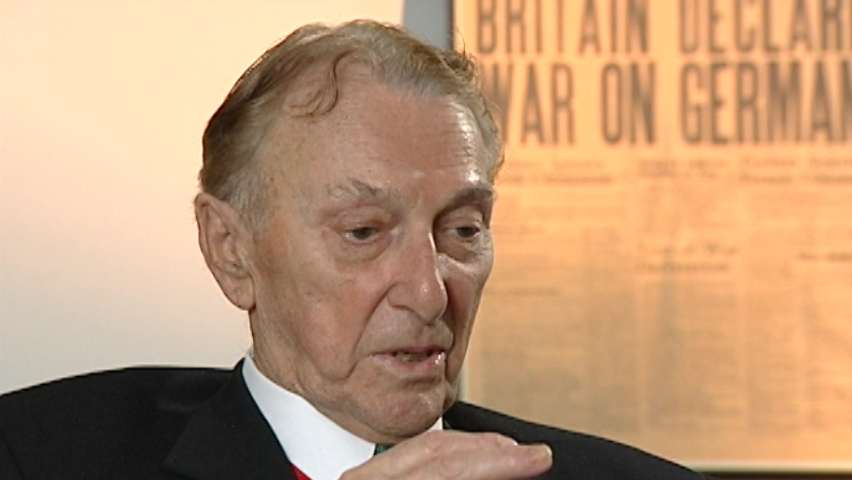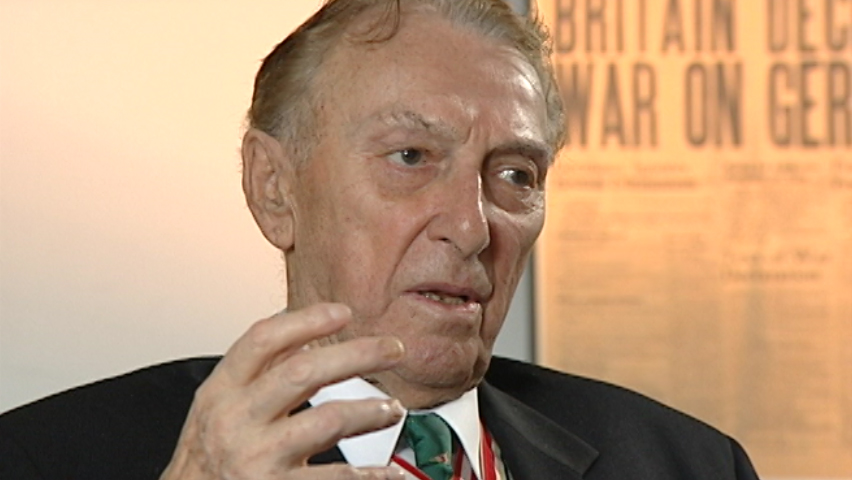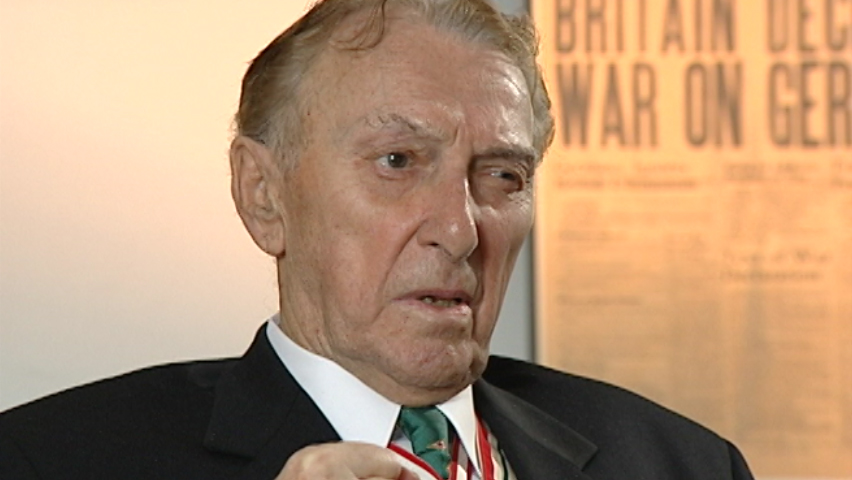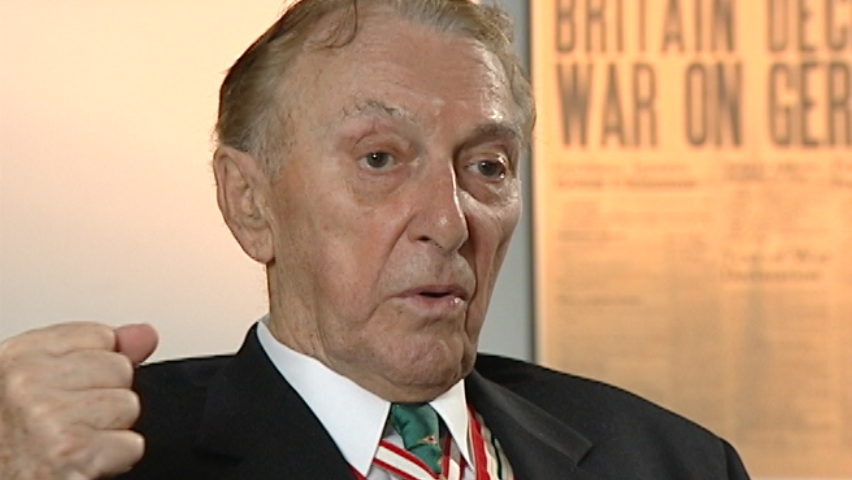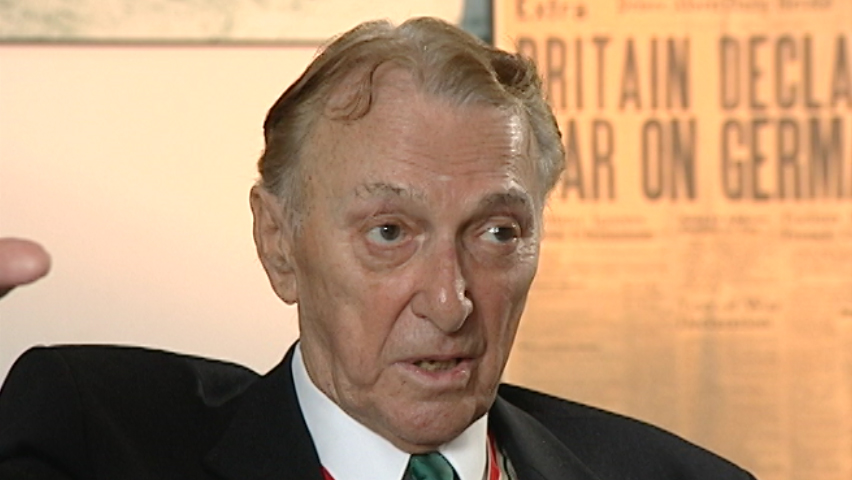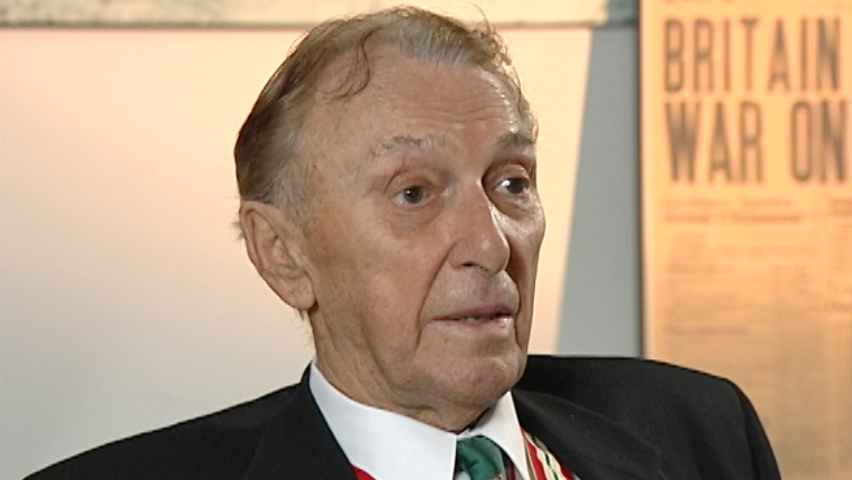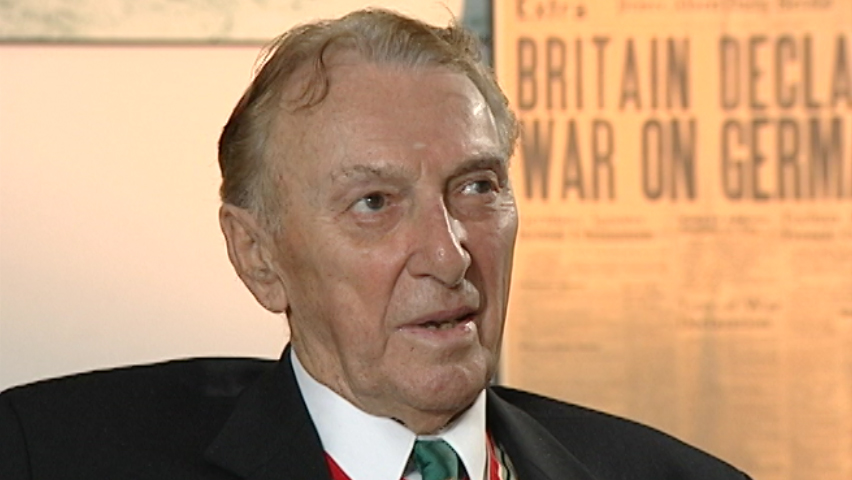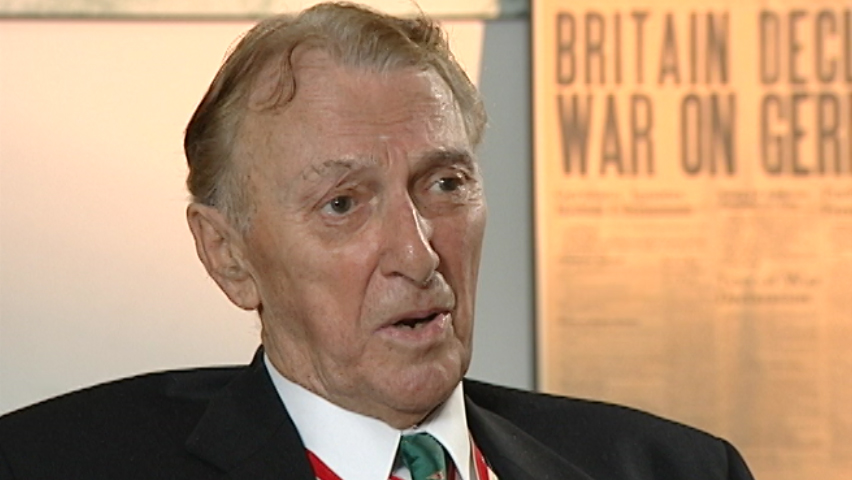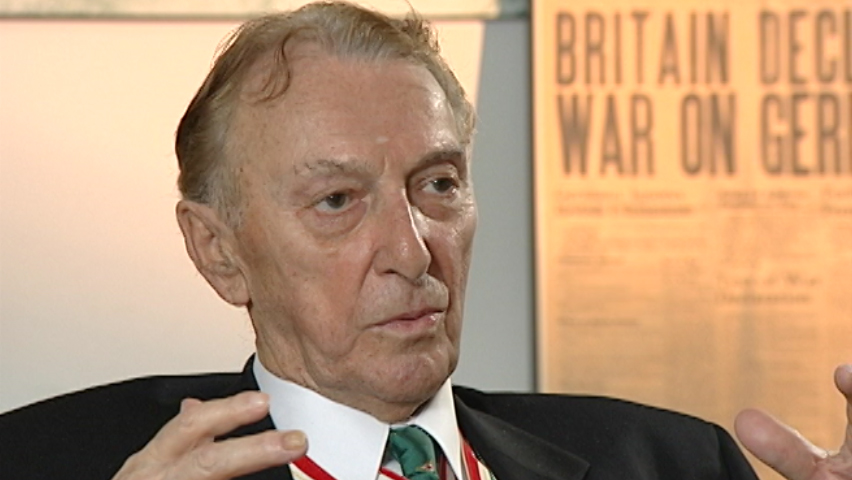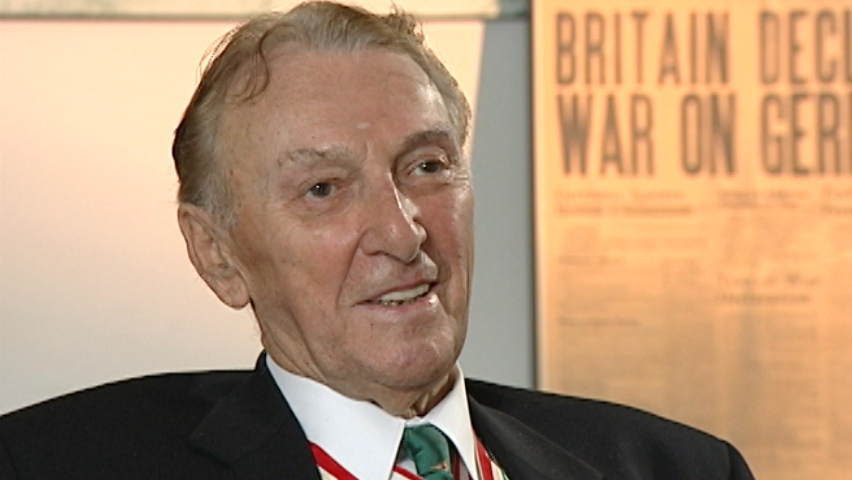D-Day Landing Part 2
Heroes Remember
D-Day Landing Part 2
Transcript
Description
Mr. Chadderton describes his responsibilities on the beach head during the invasion.
Clifford Chadderton
Clifford Chadderton, CC, O. Ont., OStJ, CLJ, CAE, DCL, LLD Mr. Chadderton was born May 9, 1919, in Fort William, Ontario, and was raised in Winnipeg, Manitoba. His mother worked as an accountant. His father, an entrepreneur, was a veteran of the First World War who suffered complications from being gassed at Vimy Ridge. Under the tutelage of his parents Mr. Chadderton was brought up to believe in Canada and the importance of education. He became interested in social events, politics, military history and the process of debate. These interests led Mr. Chadderton to become a news editor for the Canadian Press and a reporter for the Winnipeg Free Press while attending the University of Manitoba. Mr. Chadderton even found time for another interest - playing hockey for the Winnipeg Rangers, the farm team for the New York Rangers. On October 15, 1939, Mr. Chadderton enlisted in the Royal Winnipeg Rifles, climbing the ranks quickly to become a company commander and an acting major by the end of the war. While serving in Europe he was wounded twice, once by a bullet at the Abbaye d'Ardenne in Normandy, and then by a grenade near the Leopold Canal in Belgium on October 10, 1944. There, he lost his right leg below the knee, and his military career came to an end. Mr. Chadderton never let the loss of his leg hinder him. In fact, it has made him a beacon of hope to many, and has given him the opportunity to work for the needs and benefits of Canadian amputees and veterans. He is the Chief Executive Officer of The War Amps, and Chairman of the National Council of Veteran Associations in Canada. A persistent, dedicated and devoted man, Mr. Chadderton is also known nationally and internationally as a documentary producer, creating The War Amps Never Again! series, which illustrates the realities of war. He has also written an inspirational memoir entitled, Excuse Us! Herr Schicklgruber, which is an insight into the personalities, feelings and hopes of the men who fought alongside Mr. Chadderton in the Second World War. Mr. Chadderton continues to challenge the world and enjoy life with no regrets, having made a home for himself in Ottawa, Ontario, and creating a legacy with his wife, two children, and four grandchildren.
Meta Data
- Medium:
- Video
- Owner:
- Veterans Affairs Canada
- Duration:
- 03:40
- Person Interviewed:
- Clifford Chadderton
- War, Conflict or Mission:
- Second World War
- Location/Theatre:
- France
- Battle/Campaign:
- Europe
- Branch:
- Army
- Units/Ship:
- Royal Winnipeg Rifles
- Rank:
- Major
- Occupation:
- Infantry Company Commander
Related Videos
- Date modified:



